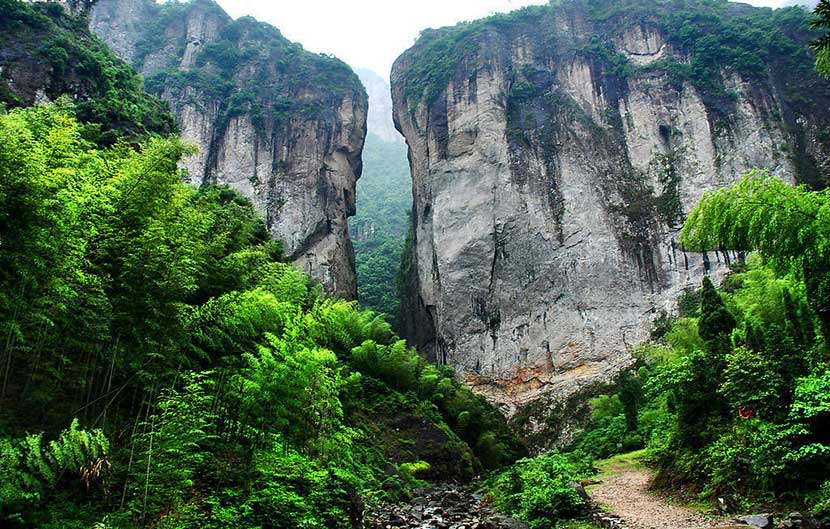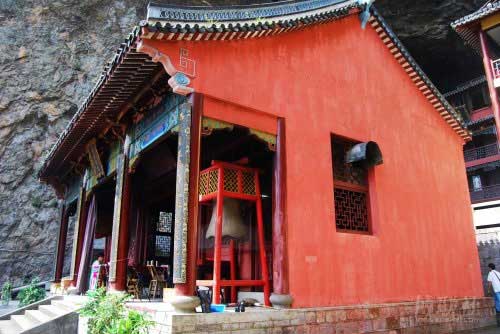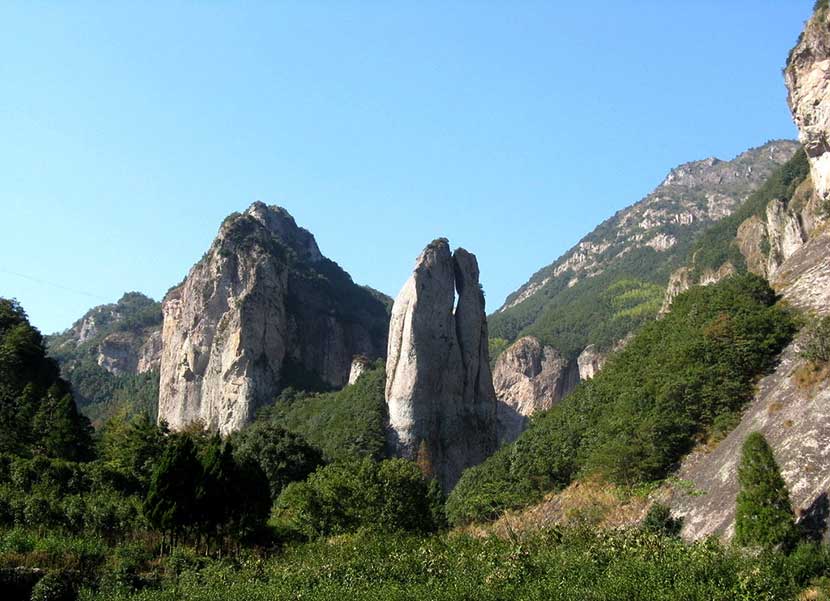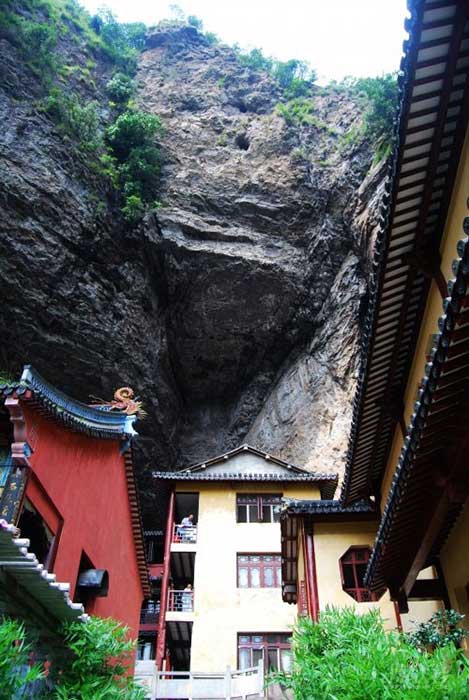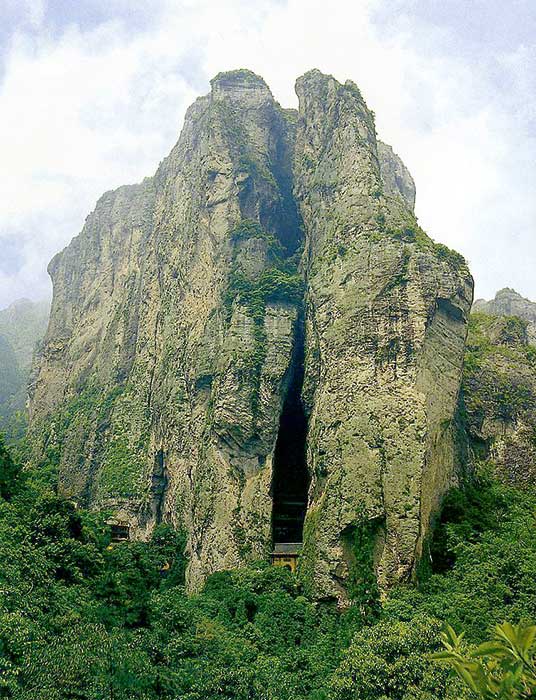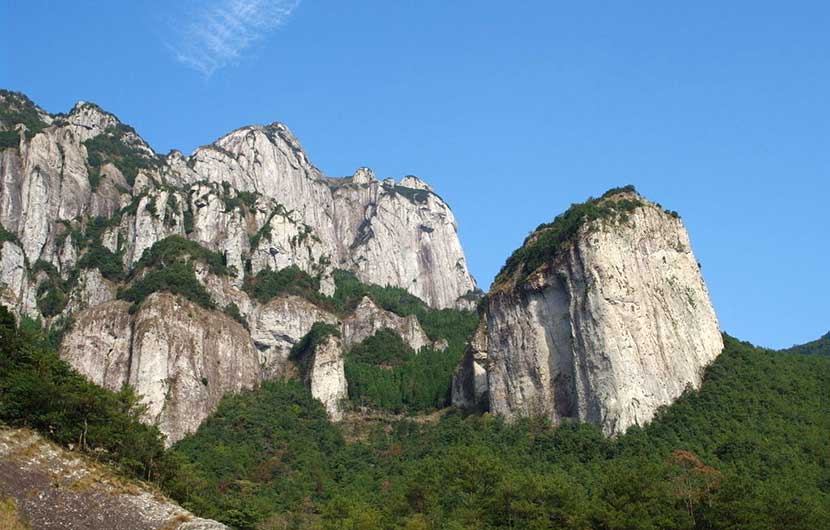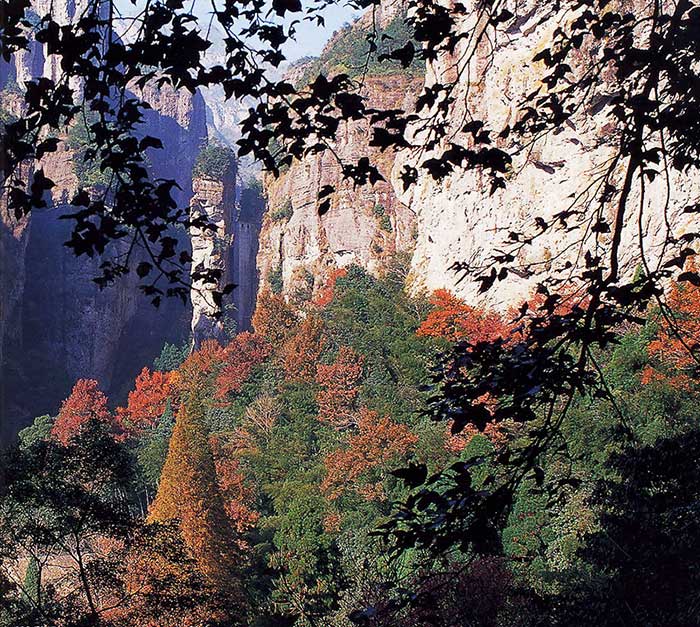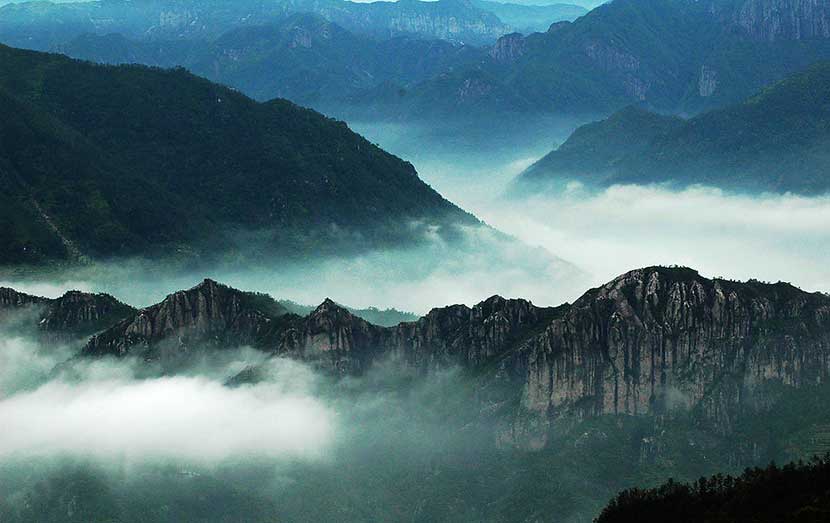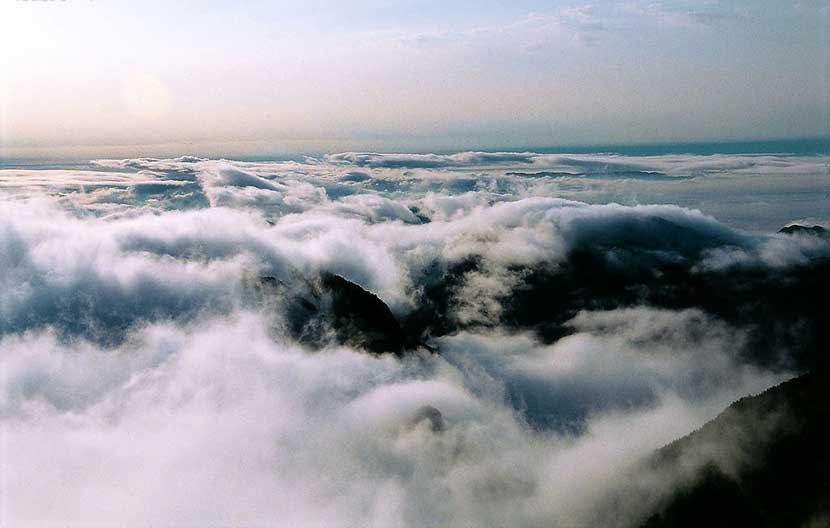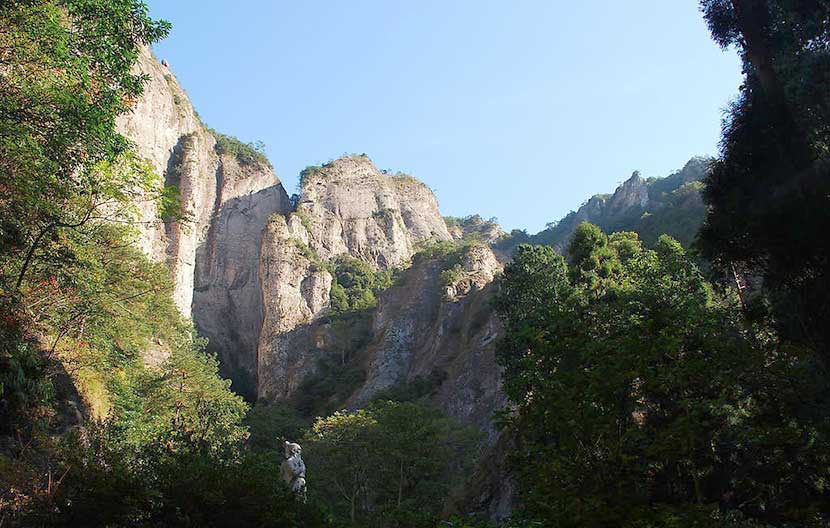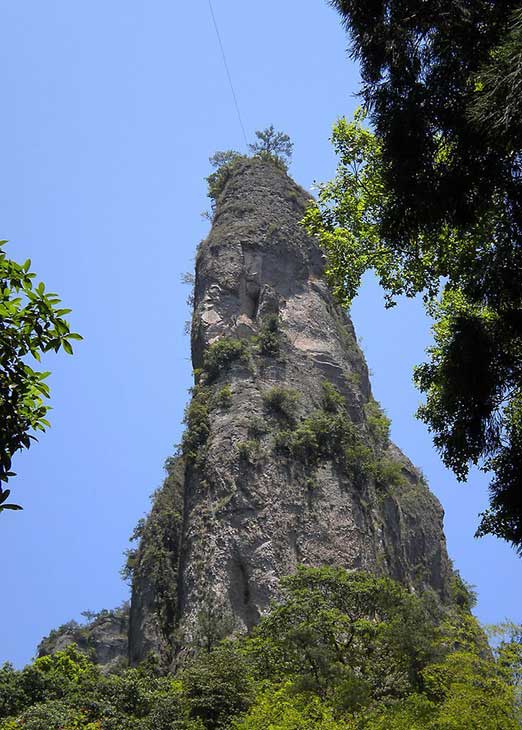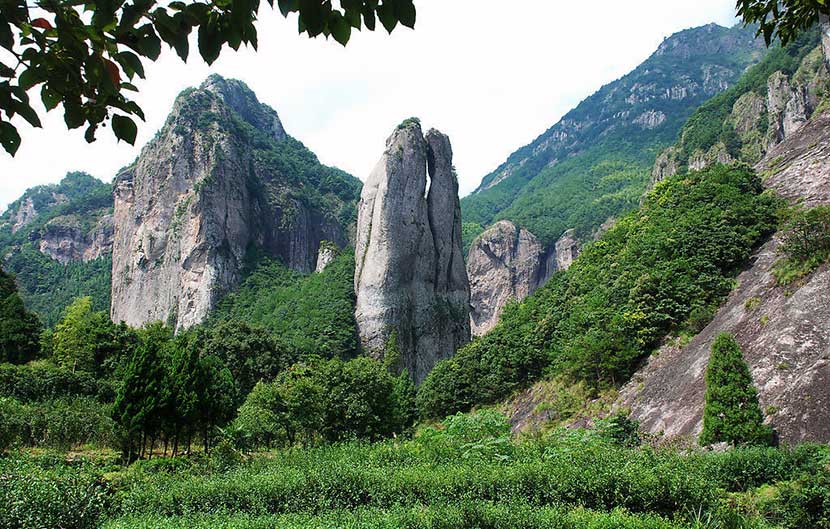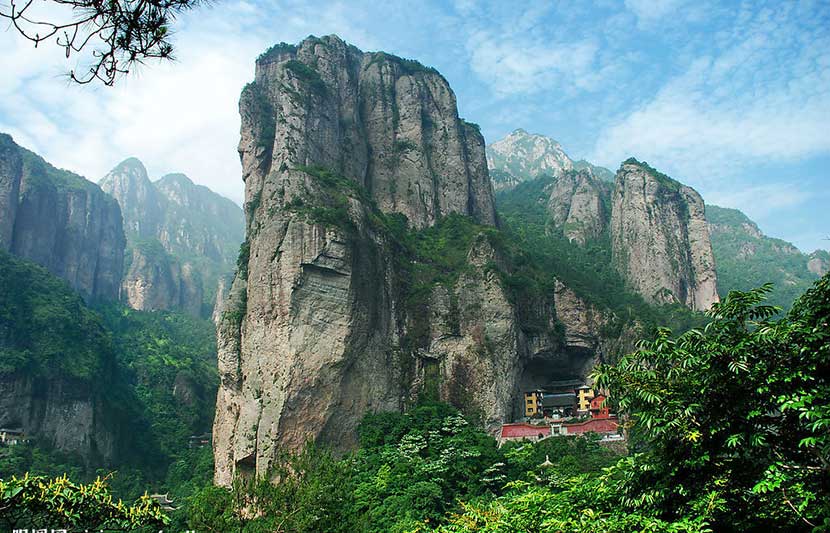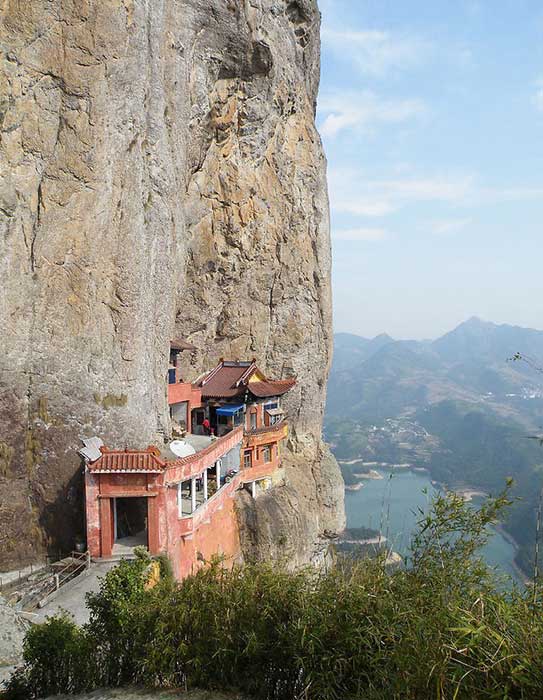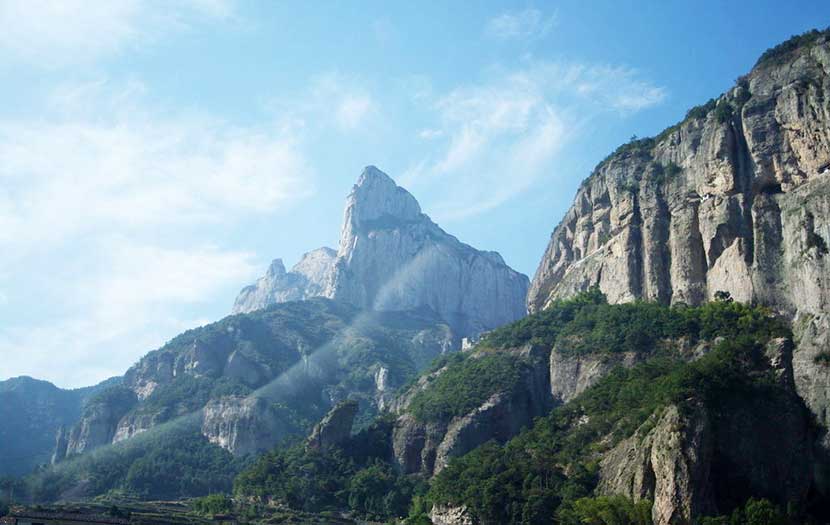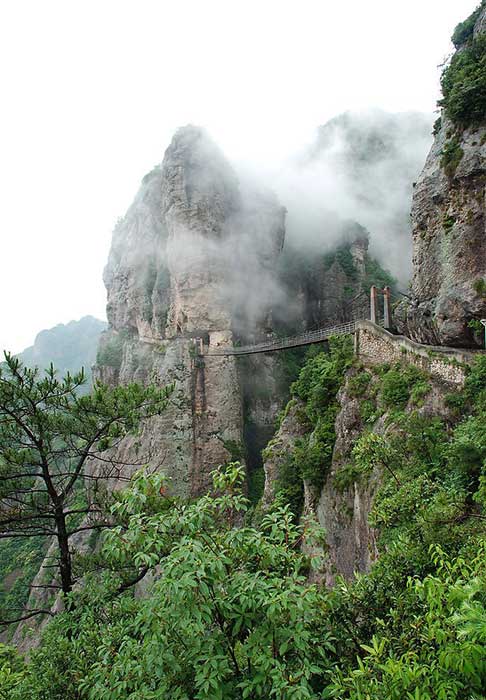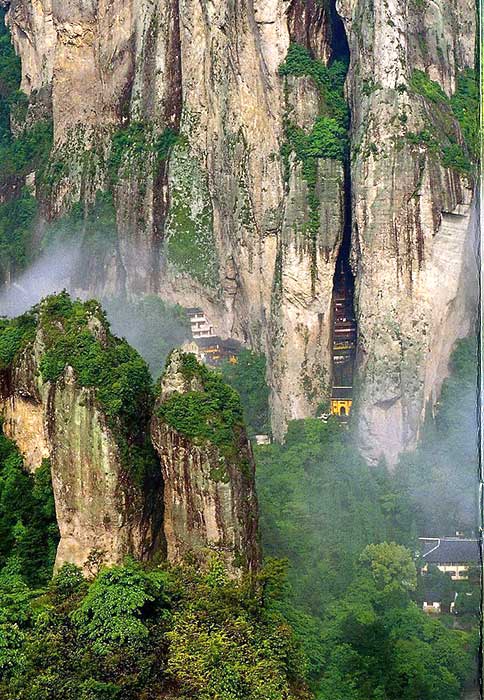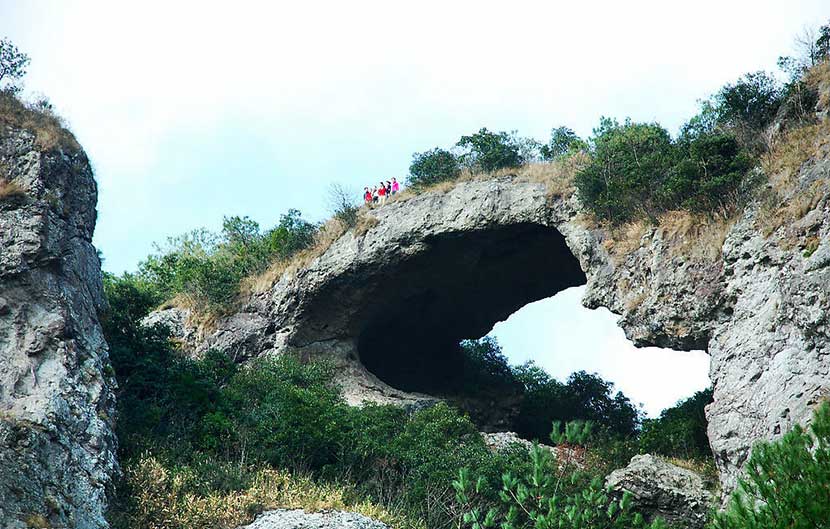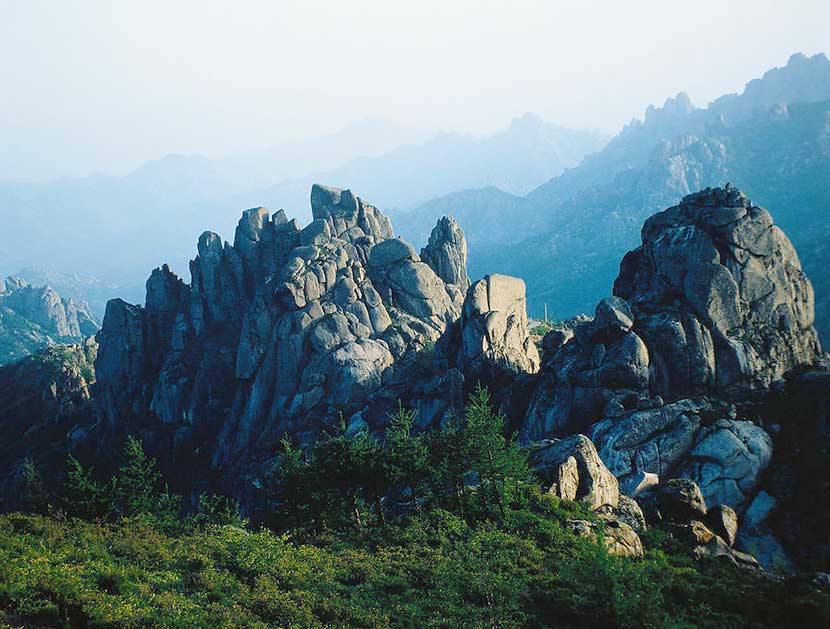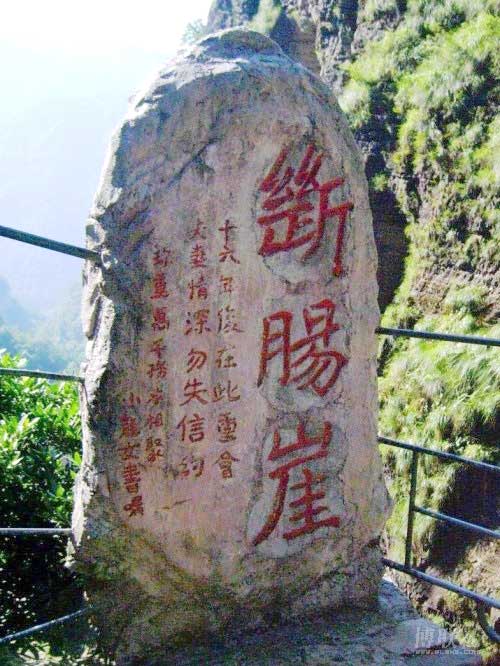Mount Yandang - Yandang Shan
Situated close to Wenzhou, Mount Yandan is a historic mountain and enjoys big popularity in Southern China. The intriguing rugged terrain of the mountain with its imposing peaks, many waterfalls and caves is the result of undergoing numerous geographical transformations over the course of time. Volcanic eruptions, floods, oceanic erosion and glaciers have created a natural museum of geomorphology in Mount Yandang.
As a natural park, Mount Yandang is based on its geological landform of Cretaceous volcanic rhyolite. The geo-heritage in the Park is referred to as a typical example of the formation and evolvement mode of reviviscent caldera on the edge of Asian Plates in late Mesozoic. From the geo-heritage, we can see the complete geo-evolving process of the eruption, subsiding and reviviscent apophysis of volcanoes. After the process of fracturing, cutting, and raising by the force of nature, the structure of the Caldera is presented before our eyes. The Caldera works as a natural museum to explore the structure of the edge of Asian Plates, the function of magma, and the inner geology.
The amazing beauty of the mountain has inspired innumerable artistes and scholars since the 5th century AD and given rise to over 4000 poems. Spanning over an area of 450 square km, Mount Yandang is divided into eight scenic regions which contain a myriad of natural marvels. The best known among these are The Spiritual Peaks, The Spiritual Rocks and The Big Dragon Waterfall. Located on the eastern side, the peaks are a source of infinite pleasure to imaginative visitors who see “Pictures” such as the Old Monk, The Eagle and The Love Sick Maiden etched on the rocks. The Spiritual Rocks, which has three levels, is home to an imposing collection of caves, waterfalls and valleys. The magical beauty of its surroundings gives rise to a truly relaxing and spiritual experience of communing with nature.
Beidou Cave, the largest Taoist temple in Mount Yandang, was formerly known as Fu-hu-Dong because the cave the temple building is located within stays opposite to Fu-hu Peak (Fu-Hu means ‘taking captive of tiger’ in Chinese) Later on, due to the traditional worship to God Beidou, it changed its name as Beidou Cave. With GuanYin Cave on the left side, Beidou Cave is spacious, bright with full sunlight, cool in summer and warm in winter—which makes it unique among all caves in the mountain. Within the cave stands a Taoist temple which boasts some building parts like Reach-The-Clouds Temple, the Eight-Immortals-House, The Worthy-Meeting Court and other magnificent buildings.
There stand some Buddhism temples within the mountain
Other resources:
OPENING HOURS
| Week Days | 8:00 – 5:00 |
| Saturday | 9:00 – 5:00 |
| Sunday | 11:00 – 4:00 |





